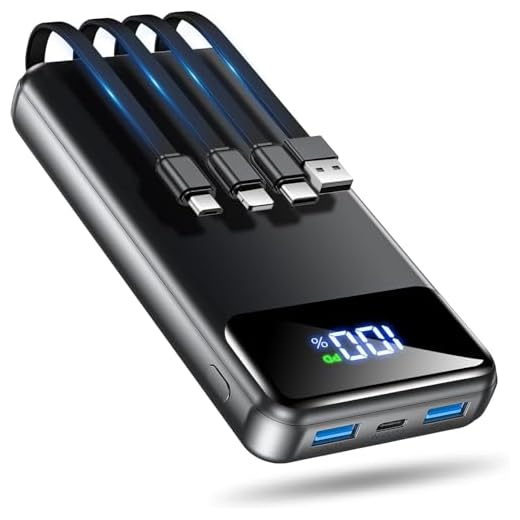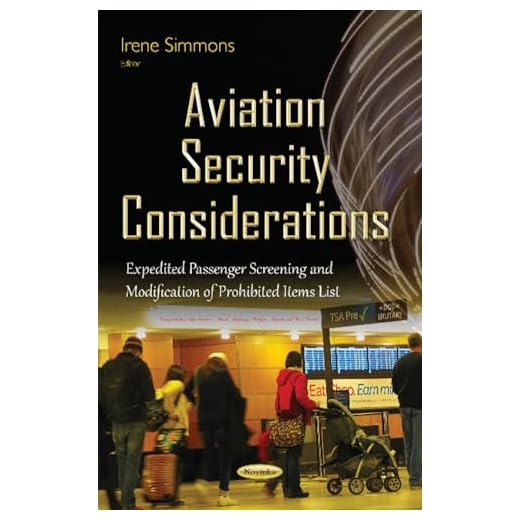

Before packing, ensure that sharp objects like knives, scissors, and ice picks are left behind. These items pose significant safety threats and are not permitted during security screenings.
Liquids, gels, and aerosols exceeding 3.4 ounces (100 milliliters) must stay at home. All such substances need to fit into a single quart-sized clear bag for easy inspection at checkpoints.
Certain sporting goods, including baseball bats and golf clubs, should be checked in rather than taken on board. These materials can be used as weapons and are thus restricted in passenger compartments.
Firearms and explosives–this encompasses products like fireworks and flammable items–are strictly forbidden in any cabin setting. Always consult airline guidelines for specific regulations regarding these items.
Drug paraphernalia and substances prohibited by law must not be included in your carry-on. Make sure to research the laws pertaining to any potentially restricted items prior to travel.
Electronic devices with batteries over a specified capacity may also face scrutiny. Always verify with your airline regarding the limits and regulations for your gadgets.
Prohibited items: sharp objects and weapons
Sharp objects like knives, scissors, and razor blades are strictly forbidden in cabin baggage. This includes any blade longer than 6 cm. Items such as box cutters, ice picks, and utility knives fall into this category.
Weapons, including firearms and replicas, are completely prohibited. This covers not just guns but also anything that resembles a weapon, such as toy guns. Ammunition is also banned in the passenger area.
Sporting equipment identified as potential weapons, like baseball bats, golf clubs, and hockey sticks, must also be stored in checked baggage. Even certain types of self-defense tools, including pepper spray, are not authorized on board.
Always review the specific regulations of the airline before packing to ensure compliance and a smooth travel experience.
Restrictions on Liquids, Gels, and Aerosols
Containers for liquids, gels, and aerosols must not exceed 100 milliliters (3.4 ounces) per item. All items need to fit into a single transparent, resealable plastic bag with a maximum capacity of 1 liter (approximately 1 quart). This bag should be presented separately during security checks.
Common items falling under these regulations include drinks, shampoos, lotions, and aerosol sprays. It’s advisable to check for any specific airline policies, as they may have additional guidelines or restrictions.
Exceptions exist for medications and baby food, which are permitted in larger quantities if declared at security. Ensure that any necessary documentation, such as prescriptions, is readily available to facilitate the screening process.
For beachgoers, consider that some items, like sunscreen spray, may need to comply with these regulations when packed for air travel. For recommendations on beach products, explore the best beach umbrella in st augustine.
Items Banned for Safety: Electronics and Batteries
Power banks and lithium batteries exceeding 100 watt-hours are prohibited for carry-on items. Devices with batteries such as laptops, tablets, and smartphones must be securely stored. It’s essential to check if batteries are installed in devices, as spare lithium batteries over 300 watt-hours can lead to confiscation.
Small electronics, including e-readers and portable gaming consoles, are typically permitted, but carry limited extra batteries. Focus on items below specific wattage limits, as exceeding them results in restrictions. Charging cables can accompany these devices without complications.
Always ensure that devices are powered off and not in sleep mode during security screenings. Additional pat-downs may occur for large electronics, which could delay boarding processes. Make sure to comply with guidelines to avoid unexpected issues. Prior preparations can assist in smoother travels.
Food and Agricultural Products: What to Avoid
Fruits and vegetables are often a red flag at security checkpoints. Many countries restrict the importation of these items to protect local agriculture. For instance, citrus fruits, potatoes, and certain vegetables can harbor pests that may threaten local crops. Always check the specific regulations of your destination.
Dairy Products
Dairy items, such as cheese and yogurt, typically fall under restrictions. These products can spoil quickly and may not comply with transport requirements. Even hard cheeses may be scrutinized, so opting for shelf-stable snacks is advisable.
Meat and Seafood
Carrying raw or cooked meat and seafood can lead to complications at the security gate. Many nations impose strict bans on these items to prevent the spread of animal diseases. Stick to packaged snacks or items that are commercially processed.
| Item Type | Notes |
|---|---|
| Fruits | Check for import restrictions; often banned. |
| Vegetables | May carry pests; limited or prohibited. |
| Dairy | Usually subject to strict rules; spoilage risk. |
| Meat | Bans apply; risk of disease transmission. |
For added preparation, consider reading how to increase air pressure from your compressor tips and tricks.
Special considerations for medical equipment and medications
Passengers requiring medical devices and prescriptions should prepare for security checks accordingly. Discussing specific needs with the airline prior to departure can facilitate the process.
- Medical Equipment: Devices such as CPAP machines, nebulizers, and insulin pumps generally can remain in carry-on bags. Consider verification of your specific equipment with airline staff.
- Medications: Prescription medications should be kept in their original packaging, clearly labeled with your name and dosage instructions. Carry a copy of your prescription or a note from your healthcare provider, especially for controlled substances.
- Liquid Medications: While liquids typically face restrictions, medications in liquid form may exceed the standard volume limit. Inform security personnel about these items upon arrival at the checkpoint.
- Cooling Packs: If temperature-sensitive medications require refrigeration, keeping them cool using ice packs is permitted, but check with the airline about storage guidelines.
- Allergies and Special Needs: Passengers with severe allergies should notify the airline ahead of time and may want to carry an epinephrine auto-injector. Provide documentation if necessary.
Planning ahead ensures that you can travel comfortably and securely with your medical items and medications.








